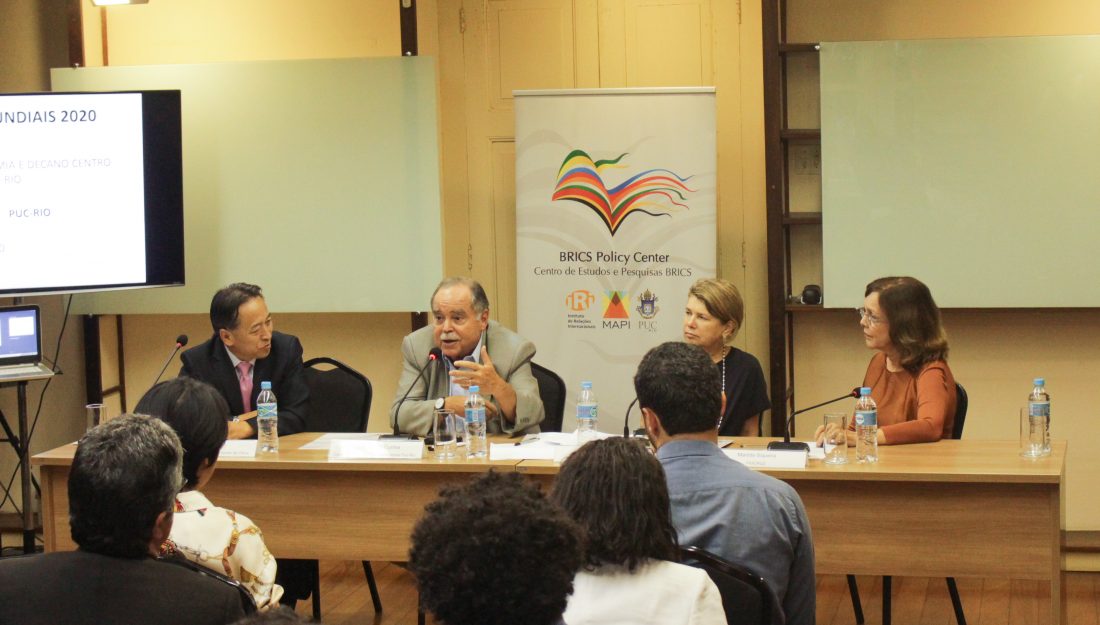
Second “Instant Debates” Discusses the Coronavirus in China and its Implications for International Politics.
On February 14th, the BRICS Policy Center organized a lecture “Coronavirus in China and its Implications for International Politics.” The objective of the event was to discuss the new Coronavirus and its respective repercussions for international politics, emphasizing actions taken by the Chinese government, along with the effects on politics and on both national and international economies.
At the event, the following professors were present: Sr. Li Yang, the Consulate General of the People’s Republic of China, Prof. Luiz Roberto Cunha, Center of Social Sciences and Department of Economics at PUC-Rio, Prof. Monica Herz, Institute of International Relations at PUC-Rio, and Dr. Marlida Siquiera, Oswaldo Cruz Foundation (Fiocruz). Additionally, the debate was facilitated by Prof. Maria Elena Rodriguez, researcher at BPC (IR/PUC-Rio).
In his talk, Sr. Li Yang, from the Consulate General of China, presented the current picture of the novel coronavirus epidemic in China, along with an explanation of how the Chinese government is handling this. According to the Consulate General, China has been concentrating its efforts on the containment of the epidemic, the treatment of diagnosed patients and investment in scientific research pertaining to the virus, in collaboration with international organizations and large research centers across the world, who could help develop a vaccine.
Under a more technical lense, Dr. Marlida Siquiera presented the new scientific terminology for the virus announced by the WHO – Covid-19 – and also explained a little about the transmission, symptoms and the need to better understand the Covid-19 characteristics in order to contain the disease.
Professor Luiz Roberto Cunha addressed the economic impacts of this epidemic for China and for other countries in the world from an analytical perspective, comparative to other moments of crises and epidemics. According to Luiz Roberto, it is still too soon for predictions, yet one can confirm that, keeping in mind the size of the Chinese economy, any changes caused by the new coronavirus epidemic will greatly impact the international economic juncture.
Lastly, professor Monica Herz presented her final considerations related to the discussion, emphasizing that this could be an important moment for international cooperation and a revival of multilateralism. With that, the debate was opened to the public to weave in their thoughts and to present questions for the lecturers.
The event continued the series Instant Debates, which periodically brings analysis of current events concerning the international environment, bringing together academics, representatives of civil society, the private sector, political leaders and the media.

